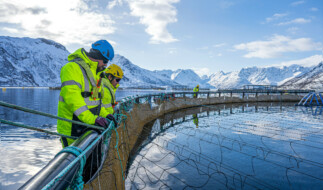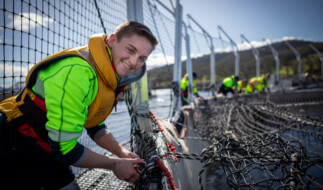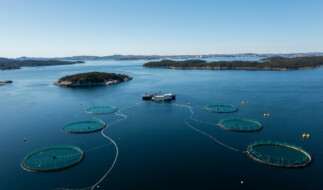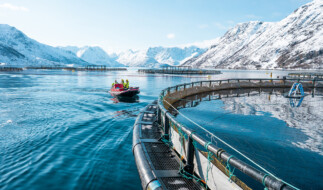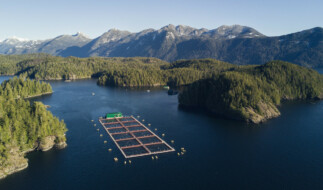THE UNITED NATIONS FOOD SYSTEMS SUMMIT: WHAT COMES NEXT AND HOW SALMON FARMERS CAN HELP LEAD
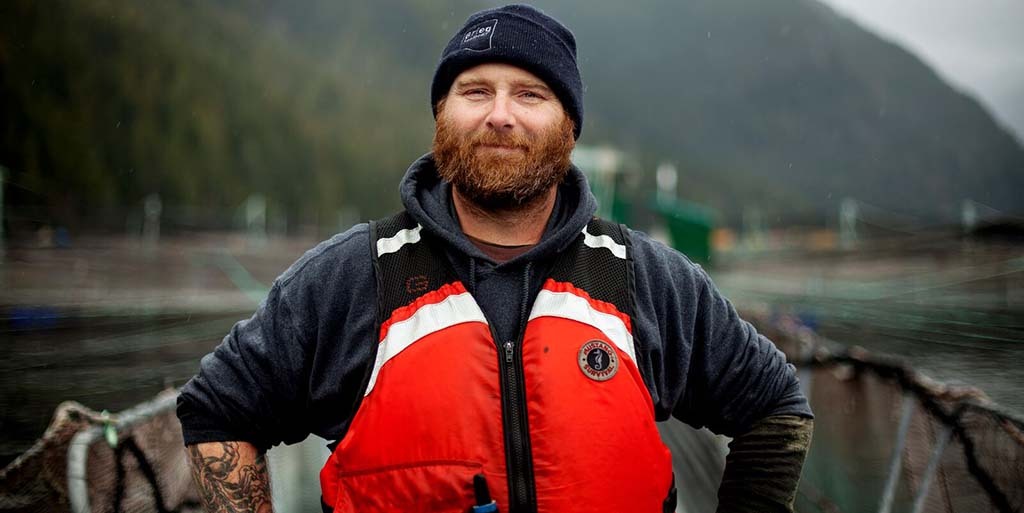
Last month, we witnessed history in the making with the first-ever United Nations Food Systems Summit (UN FSS). Now, it’s up to us to use that historic moment as a springboard for building the food system of the future. Our current food system is not fit for purpose. The number of malnourished is on the rise and agriculture produces one-third of greenhouse gas emissions (GHGs). And yet, the UN FSS reminded us that as much as the food system is a contributor to some of the most challenging public health and planetary crises of our time, it also is a solution.
For this reason, Global Salmon Initiative (GSI) stands in full support of food systems transformation. To heed the UN FSS’ call to action, GSI commits to the following as a member of the UN FSS Champions Network. These commitments were submitted to the UN FSS’ Commitment Registry and build on GSI’s engagement in the UN FSS process over the past year.
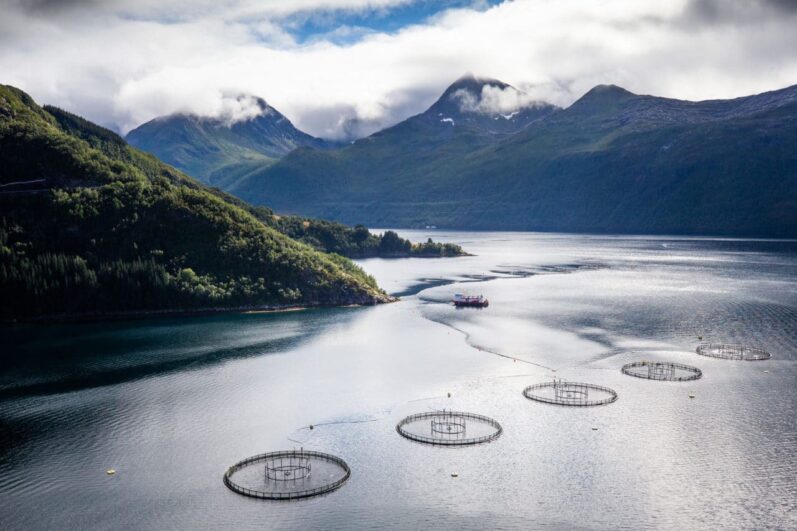
GSI members span the entire salmon supply chain, meaning we can drive environmental progress at speed and scale.
1. Working across our membership, supply chain and food systems partners to identify and innovate on the greatest environmental challenges facing the aquaculture industry
We commit to scaling up resource-efficient feed innovations, reducing antibiotic usage, improving fish welfare, providing decent work and supporting the communities where our members operate. You can read more about our progress to-date on these action areas here.
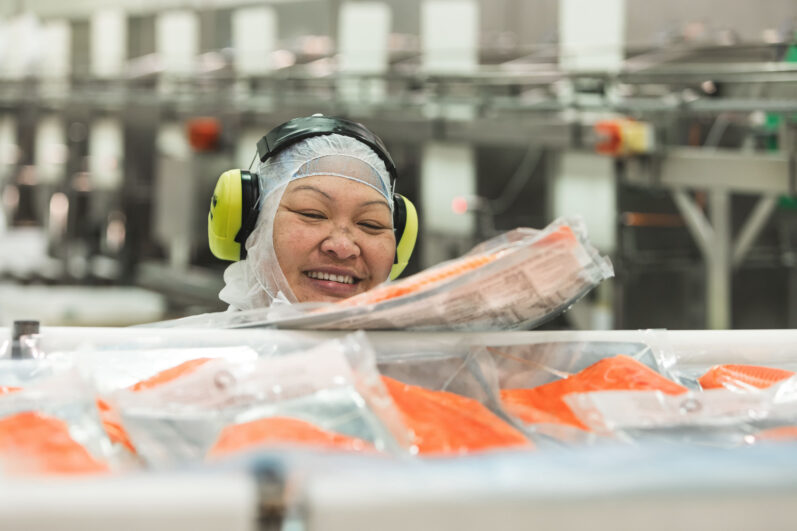
Through our annual Sustainability Report, we can identify where progress is being made and where it needs to happen faster.
2. Improving industry transparency by reporting on 14 indicators through our annual Sustainability Report
We commit to maintaining our rigorous, third-party validated sustainability reporting framework. It was the first industry-wide Sustainability Report for the food sector and each year, we identify ways to make it stronger. Most recently, we added a section on farmed salmon’s nutritional contributions. Looking ahead, we are working with World Wildlife Fund (WWF) to add farm-specific GHG data based on our #3 commitment, below.
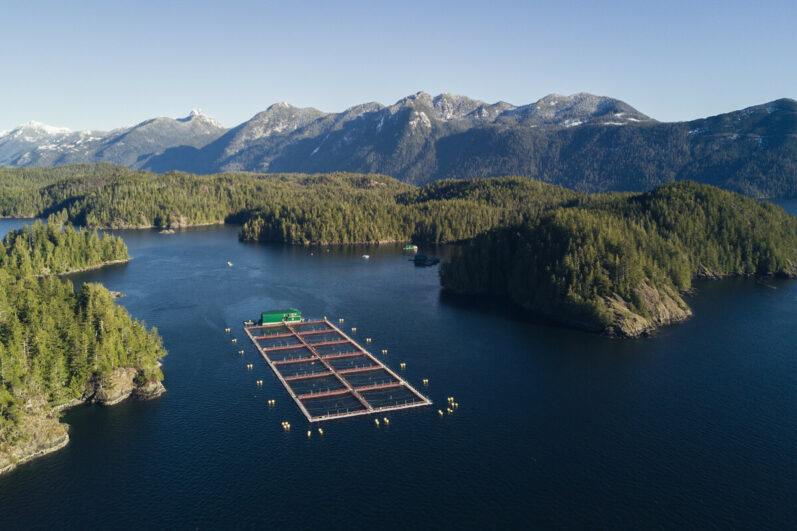
GSI is working with WWF to develop a novel framework for measuring and mitigating our GHGs.
3. Partnering with WWF to develop a GHG reporting framework, a first for the farmed salmon sector
This framework will include life cycle analyses for the whole production cycle of farmed salmon from feed to consumer, with the intention of it being valuable to the aquaculture sector more generally and comparable to other protein sectors. This effort will enable us to provide real-time data and be more farm specific, helping to target the areas of greatest improvement, build resilience and support implementation of less emissions-intensive production. This new reporting framework, coupled with GSI’s annual Sustainability Report, will empower members to transparently measure and report on their environmental footprint and socioeconomic contributions, and continually improve progress across multiple dimensions of sustainable food systems.
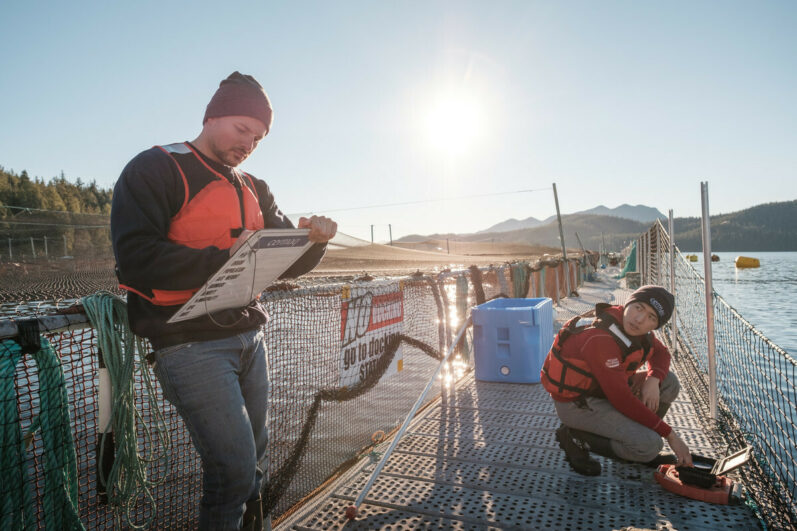
GSI commits to 100% of members’ farmed salmon being Aquaculture Stewardship Council certified.
4. Striving for 100% Aquaculture Stewardship Council (ASC) certification
Currently, 40% of GSI production is ASC certified. We commit to achieving 100% ASC certification to ensure the salmon farming sector is aligned with best-in-class fish welfare standards that improve productivity, sustainability performance and social contributions.
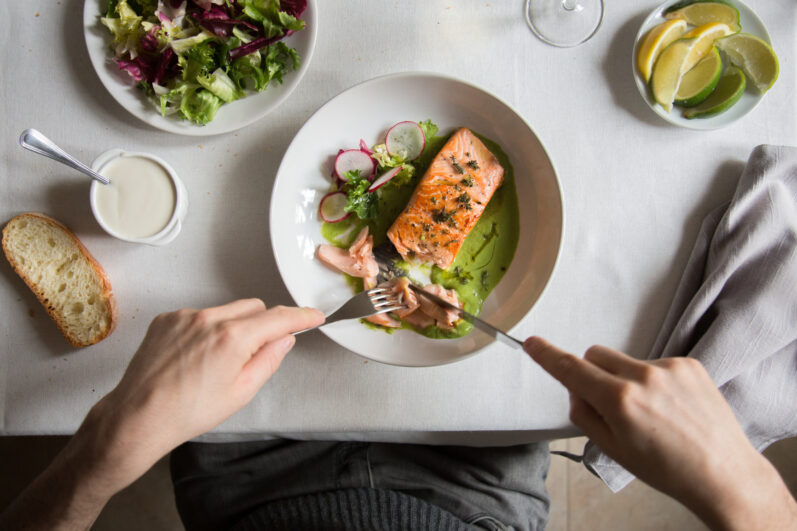
Farmed salmon is linked to positive health outcomes, and it has a lower environmental footprint than other protein options.
5. Increasing awareness of aquatic foods’ important contributions to healthy, sustainable diets
We commit to using our communications platforms to educate on aquatic foods and farmed salmon’s contributions to healthy diets, as recommended by dietary guidelines, and partner with groups like the Seafood Nutrition Partnership and ASC to promote seafood and sustainable nutrition.
We know that sustainable blue foods play an essential role in nourishing people and planet (read how here). As salmon farmers who live and work on the water, we’re committed to continually improving how we produce salmon, protect our ocean and waterways, preserve natural resources, and promote health and well-being in the communities we live in and serve.
